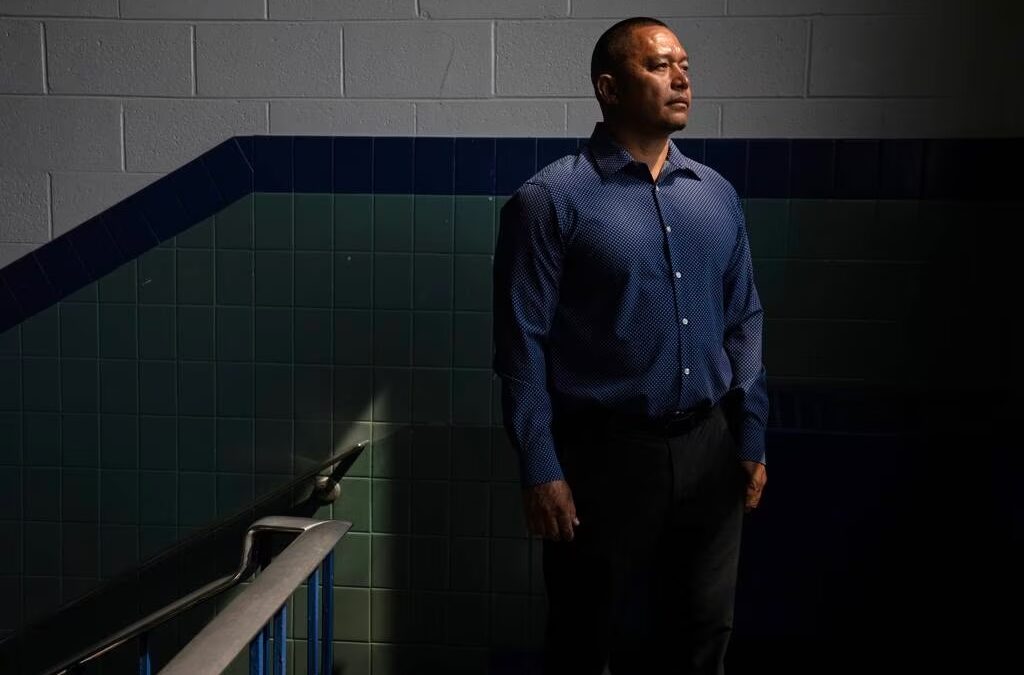Our city is no stranger to violence. Violence has become so common that we have begun to normalize it. In the past six years, we have seen a fundamental shift in our city’s approach to public safety. Community violence intervention programs such as mine, READI Chicago, have the opportunity to work with the city, county and state to advocate in ways we haven’t been able to before.
I grew up on the Northwest Side of Chicago in the 1990s and from an early age was taught that if “A” happens in my life, “B” had to happen. I remember all those times when I missed school, didn’t get the help I needed and didn’t have programs like READI to turn to. As a young adult, I remember being told that in the next two years I would be dead or in jail. I was at an age in which roadblocks seemed like a challenge that I had to overcome and the uncertainty in my life made me believe that I was invincible. I could do anything I put my mind to, and had I had the wisdom, support and experience that I have now, I believe that my story would have been written differently.
Programs such as READI Chicago challenge learned behaviors, teach accountability and professional development, and help participants identify their triggers. Community violence intervention is the space where we can bring in techniques like cognitive behavioral interventions and outreach services that teach us how to respond. Through these interventions, participants learn to recognize that if “A” happens, “B” does not have to happen.
READI was launched in 2017 as a response to the high rates of shootings and homicides in Chicago and is designed to target the highest-risk individuals and work with them to help change their thinking, regulate behaviors and create employment opportunities.
However, we cannot rely on one entity to help us reduce gun violence in our city. It takes an entire city to create authentic change. Community buy-in and collaboration with our partner organizations, such as the Institute of Nonviolence Chicago, UCAN, North Lawndale Employment Network, Heartland Human Care Services and Centers for New Horizons, mean that services stay with our participants over time, broadening our impact throughout Chicago.
Violence intervention programs have traditionally been expected to prove that what we do works — and it does. Time and time again, we have shown, with strong empirical evidence, that community violence intervention strategies are effective and not only instill safety measures but also create ways for our communities to heal.
[ Opinion series: Turning the tide on Chicago’s gun violence ]
According to a study by the University of Chicago Crime Lab, READI participants experienced 79% fewer arrests and 45% fewer victimizations related to shootings or homicides. Participants are less likely to be involved in the most severe and costly types of violence, shootings and homicides, reducing the overall cost to society by at least $174,000 per participant, which equates to a 3-to-1 benefit-cost ratio from violence reduction. In addition, from READI Chicago’s launch to this June, the total wages, stipends and per diems earned by participants was approximately $14.4 million. Through these financial incentives, READI and our partners invest in our participants while they give back to their communities.
The impact that community violence intervention can have on communities is not immediate, but it is long-lasting and creates healing in the community, using the strengths of the community to close the systemic gaps that have long plagued our city. But we are far from done. Our city needs intentional and continuous investment in our communities that will create a network of care and the healing that our communities and our families so urgently need.
Through collaboration, we can examine the infrastructure that creates a healthy community to work toward addressing the decades of disinvestment in the neighborhoods we serve. Our voices are at the table, and we can advocate in ways we haven’t been able to before. We are able to develop plans and work with city leaders to make decisions to set up and improve infrastructures.
If READI Chicago had existed when I was growing up, it could have saved me from making impulsive decisions that would end up altering my life forever. While I consider most of my young adulthood a learning experience, community violence intervention programs could have helped me address my trauma early on and navigate a career to a safe and successful future. However, dwelling on the “could haves” is not constructive, and it is because of my past, and the support of my peers, that I forged my own path forward.
I am humbled every day by the dedication of our staff and partners doing such important work every day. While progress is not linear or immediate, I am optimistic about the future of community violence intervention and public safety in Chicago and beyond.
Jorge Matos is executive director of READI Chicago and is also a member of Mayor Brandon Johnson’s Transition Committee for Public Safety.
